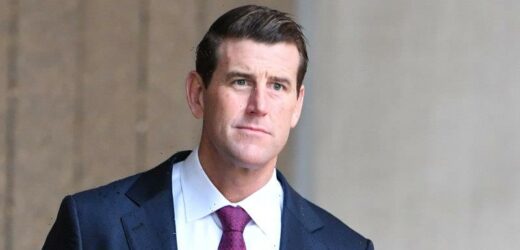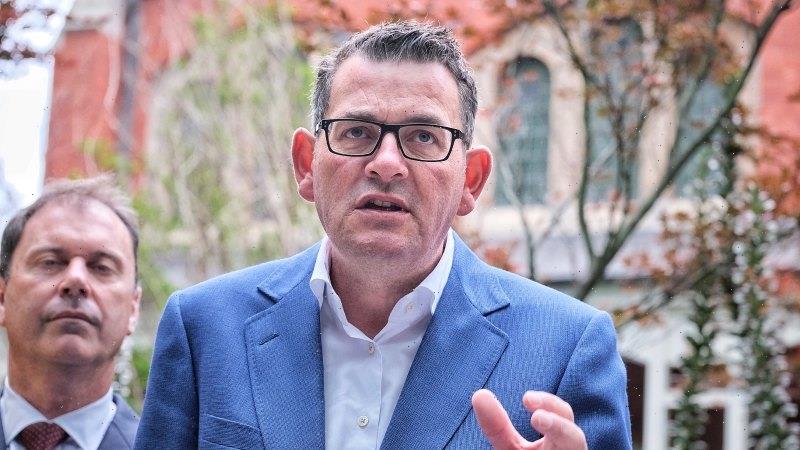Three former SAS soldiers and their associates have emerged as the key targets of the secretive agency investigating war crimes by Australian soldiers, which aims to lay its first criminal charges this year.
The Office of the Special Investigator has focused on the “SAS three”: Victoria Cross recipient Ben Roberts-Smith and two former SAS three-squadron members, including a soldier allegedly seen in helmet camera footage shooting an apparently unarmed Afghan man in a wheat field.
The ramping up of investigations into the three ex-SAS members and a small number of their associates comes as former special forces soldiers and their supporters have mounted a campaign to smear those they suspect of co-operating with war crimes investigators.
As the ongoing war crimes probe divides the nation’s defence community, a company recently founded by five veterans has produced and is marketing bottles of whiskey named after an alleged war crimes incident currently under active investigation. Promotional material for the whiskey published on the liquor company’s website glorifies the involvement of some in the SAS in “violence, drinking and theft”.
The Age and The Sydney Morning Herald have spoken to almost two dozen sources, including defence insiders who have been contacted by the Office of the Special Investigator (OSI) and asked to provide the agency with information or witness statements about incidents in Afghanistan. Several serving and former SAS soldiers are co-operating.
There is no suggestion that the SAS three are guilty of a war crime, only that they are the key targets of the OSI teams of investigators and analysts.
Ben Roberts-Smith outside the Federal Court in Sydney during his defamation trial.Credit:Peter Rae
In the cases of the SAS three, the OSI has obtained information, including from witnesses, that implicates them in alleged summary executions of “persons under control”, the official term for detainees, or non-combatants.
The three-squadron wheat field killer was captured on helmet camera vision killing an apparently unarmed Afghan man. The vision, broadcast by the ABC in 2020, shows him asking his patrol commander if he should “drop”, or shoot the man. The commander’s response is inaudible.
A lawyer for the ex-soldier did not respond to questions but multiple sources said OSI officials had privately expressed confidence he would be charged with war crimes.
The removal of a prosthetic leg from the dead Afghan symbolised ‘everything the Troop stood for: violence, drinking and theft’.
The OSI, which was set up by the government two years ago as the investigation and prosecution agency for war crimes, has been examining the wheat field killing, along with the veteran’s involvement in two other alleged war crimes incidents.
The second former three-squadron soldier is under investigation for his involvement in at least two alleged war crimes in 2012. This soldier’s alleged breaches of the Geneva Conventions were first uncovered and exposed in 2019 by The Age and Herald and involved the death of an injured Afghan who was removed from the care of an SAS medic by the soldier.
The highest profile member of the SAS three under the OSI microscope is Roberts-Smith, who denies all wrongdoing and who is suing this masthead for defamation for previously exposing his alleged involvement in war crimes.
It has long been anticipated that Roberts-Smith would be one of almost two dozen special forces soldiers to be scrutinised by the OSI, but his emergence as a key target has not previously been reported. Roberts-Smith was a prominent target of the Brereton inquiry into war crimes, which referred the findings of its exhaustive report in November 2020 to the OSI, along with the names of 23 suspects.
In November 2020, Roberts-Smith welcomed the creation of the OSI because the office had the “expertise and experience to consider evidence, not rumours, and make decisions based on evidence rather than on unsubstantiated rumours”.
Among the lines of inquiry being pursued by the OSI are allegations that Roberts-Smith directed two now former SAS soldiers to conduct summary executions. One of those soldiers has confessed to the alleged execution to other veterans, according to sources with intimate knowledge of the confessor’s conduct.
In 2018, this masthead revealed that Roberts-Smith was the subject of war crimes investigations being carried out by the Australian Federal Police. The AFP inquiries are ongoing and separate from the OSI’s more recent inquiries into Roberts-Smith, although sources said there has been ongoing discussion about the possibility of merging the probes.
The AFP has referred partial briefs of evidence to the Director of Public Prosecutions for legal analysis. Even SAS soldiers and officers who have helped the OSI or federal police are frustrated that the various inquiries have taken so long, casting an unresolved shadow over the special forces community.
The investigations by the OSI and AFP have divided the veterans’ community. Some defence alumni believe the probes are a witch hunt, but others have called for accountability.
An investigation by this masthead has identified one of the former SAS soldiers who has participated in an online campaign against war crimes witnesses as Andrew White. White, who was not involved in the alleged crimes, recently posted online that ongoing investigations were being run by “keystone cops” who were “harassing SASR operators and their families.”
Former SAS soldier Andrew White, pictured with Ben Roberts-Smith.Credit:Instagram
White, an Afghan veteran, has denigrated SAS soldiers and support staff who have spoken up against alleged war crimes as “rats” and written that two of the Afghan veterans now assisting the OSI investigation are “dogging the boys”. White has attacked soldiers who have accused Roberts-Smith of wrongdoing, writing in one online post that it was a “pity he wasn’t eventually shown mateship from ‘some’ brothers in arms”.
“I would spit in their face,” White has written of these Afghan veterans. In a photo he posted of himself next to Roberts-Smith, White wrote “we gotcha back.”
White previously sent this masthead a statement about his online comments, but asked that it not be published.
White has also been using his social media accounts to promote a whiskey product named after an infamous alleged war crimes incident involving Roberts-Smith. The whiskey is also being promoted by the Returned and Services League of Australia (RSL) sub-branch in Kawana Waters, Queensland.
The whiskey being sold under the name of a prominent alleged war crime.Credit:Instagram
The whiskey has been produced and marketed by a liquor company owned by five veterans, including Mark Henneberry and Bryan Ramsbottom. The pair’s company produces and markets whiskey bottles designed by other veterans in a “decant on demand” model.
On Wednesday, the firm removed from public display its online promotion of the product after the pair were contacted by this masthead. It is still selling a whiskey range that celebrates an SAS mission on Easter Sunday 2009, in which two Afghans were allegedly summarily executed, although customers now need a password to view the offensive online content promoting the whiskey.
The Easter Sunday mission is under active federal police investigation.
Several SAS soldiers have given statements to the federal police about witnessing the alleged involvement of Roberts-Smith in the execution of two Afghans on Easter Sunday, including one with a prosthetic leg that was souvenired and later used as a drinking vessel. The Afghans were allegedly found in a tunnel and detained during the Easter Sunday mission, according to multiple sources with knowledge of aspects of the police inquiry.
Ben Roberts-Smith (left) with a former colleague drinking from the prosthetic leg of a dead Afghan man in 2012.
The promotional material for the whiskey uses highly offensive racist terms to describe Afghans killed on the Easter Sunday mission, describes how the SAS soldiers engaged in “gangster shit” during the operation, disputes that any detainees were found in a tunnel and describes the removal of the prosthetic leg from the dead Afghan as symbolising “everything the Troop stood for: violence, drinking and theft.”
The marketing material, which also glorifies the killing of Muslim men, claims to be “tongue in cheek”.
Henneberry and Ramsbottom’s company, which this masthead has decided not to name in order not to publicise its products, has released 150 bottles of the whiskey dedicated to the Easter Sunday mission.
When contacted, the pair’s company said the whiskey’s name, label and promotional material had been designed by a third party to raise funds for an unwell veteran. The company’s statement said the promotional material was obviously “embellished” and the firm would review its contents.
Military sources said serving and former SAS soldiers who took part in the mission found the production and sale of the whiskey disgusting, offensive and warned it could impact on the mental health of veterans.
Henneberry defended his company’s involvement in the whiskey production, saying no soldiers had been found guilty of war crimes and, in an apparent reference to those who have raised concerns about misconduct, that he’d never seen “so many people with axes to throw in my life”.
“Me, personally, I don’t think they are guilty,” he said of those facing war crimes investigations. “It’s a business decision that we have made.”
The Brereton Inquiry began in early 2016 and concluded in late 2020. The federal police’s Roberts-Smith probes began in June 2018 and are ongoing. The OSI was not operational until months after then prime minister Scott Morrison announced its creation in November 2020 and its director general, Chris Moraitis, told a senate hearing last November that he was “quietly confident” the agency would be able to “achieve our objectives of preparing briefs of evidence that the DPP will accept to prosecute.”
Among the key impediments to the OSI’s work is its difficulty in gathering evidence in Afghanistan, given the country is now controlled by the Taliban. However, both the AFP and OSI has received legal advice from the office of the Australian Government Solicitor that has resolved earlier concerns that much of the Brereton Inquiry’s information could never be used due to legal impediments.
The Morning Edition newsletter is our guide to the day’s most important and interesting stories, analysis and insights. Sign up here.
Most Viewed in National
From our partners
Source: Read Full Article






